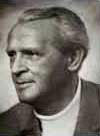Impressionen
Mein Jahr in Mannheim war mehr als ein Studium, es war eine Lebenserfahrung.
Rebeccah Dawson (Carrboro)
Villiers-Moriamé: My studying experience in Mannheim
I will first present myself and tell a bit about my background, that probably influences a lot my point of view on my studying experience.
I am a French student of EDHEC Business School, in last year of Master in Management (equivalent to Business Administration in the University of Mannheim). I always studied in France: after high school, I studied 2 years near my home city, and then 2 years in the north of France, in Lille. I did a full year in internships (twice 6-months) before coming in Mannheim for one year.
A first thing I noticed quickly in here is the cultural difference between Germany and France. When I came in, there were indications everywhere about where to go to be ‘registered’. I had many papers on me, and after a few steps through my registration, I ended up with even more papers. It is a rather funny difference, but it showed me how organized things could be. Because whatever the step I reached, I was always told where I should go next, and with what, pretty clearly. Another cultural difference is the perception of lunchtime. In Germany, lunchtime is rather flexible: you could eat around 11:00 or 11:30, but also at 13:30 or 14:00. In France, lunchtime is almost sacred, even if globalization and new ways of living makes more and more people neglect noon’s meal. Still in many schools, you would always leave at least 1 hour between 12:00 and 14:00 solely for lunch. In Mannheim, it regularly happened that I eat at 15:00 or 15:30.
Now, in terms of study, I would say Mannheim is a pretty student-friendly environment. If you live in the Quadrate, you have access to every essential place by tram, if not by foot. There are price cuts for students on the transports. And even if you live further away, you would simply take more time but not lack of anything.
The University in itself is very big. That’s the first element that stroked me when I arrived. If you take into account the faculty buildings, and all the libraries/lecture halls belonging to the University of Mannheim, it is tremendous. Such a big place, for so many students too. Out of curiosity, I looked at how many students were registered in the University of Mannheim: I found a figure between 10,000 and 12,000, which is enormous compared to the 3,000 there may be in my home school. In addition to that, the general university system makes people cross each other pretty easily: there aren’t many people with who you have 2 or 3 courses in common, unless you specialize in a topic and others do as well. It therefore pushes students to mix with each other and to know more people.
The classes in themselves are of good quality from what I experienced. There is no course with which I feel genuinely disappointed. If there was one source of disappointment, it would be the way students are evaluated, with very short exams for a very high quantity of content, where students seem not to be even expected to finish the paper. It goes in a direction totally opposite to the French perception of what an exam should be: an exercise to test your understanding of the topic and your knowledge, not a competition of how fast you can go with the knowledge you have and how you can optimize your knowledge to get the most points out of it (in a common French exam you can finish a paper without hurrying, with time to structure your answers and think about what you write. Otherwise, it’s called a ‘competitive exam’).
In the end I learnt a lot of things in Mannheim, made myself several friends, and got used to some German habits. It was a good experience to see how you could receive education in a different way.

 „Die Stiftung soll im Dienst der Völkerverständigung und des Weltfriedens für eine Gemeinschaft von Studenten verschiedener Nationalitäten Heimstätten errichten und unterhalten.“
„Die Stiftung soll im Dienst der Völkerverständigung und des Weltfriedens für eine Gemeinschaft von Studenten verschiedener Nationalitäten Heimstätten errichten und unterhalten.“